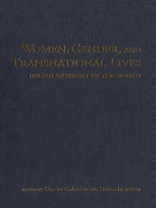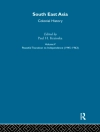Scholars in the United States have long defined the Italian immigrant woman as silent and submissive; a woman who stays »in the shadows». In this transnational analysis of women and gender in Italy»s world-wide migration, Franca Iacovetta and Donna Gabaccia use international and internationalist perspectives, feminist labour history, women»s history, and Italian migration history to provide a woman-centred, gendered analysis of Italian workers, and by so doing, challenge this stereotype.
Comparing the lives of women in Italy, Belgium, the USA, Canada, Argentina, and Australia, Iacovetta and Gabaccia offer a realistic and engaging portrait of women as peasants and workers, and uncover the voice of female militants. Most importantly, by using a comparative approach to the study of women»s migration over the nineteenth and twentieth centuries, they treat both women who stayed home during male migration, and the work and activism of those who moved. By pursuing this comparative method, they show how Italian women could become Communist militants, union organizers, or anti-fascist radical exiles in some countries while seeming to disappear into stereotypes in others. Ground-breaking and original, this erudite collection of thirteen essays will bring a fascinating new perspective to women»s studies and migration history.












